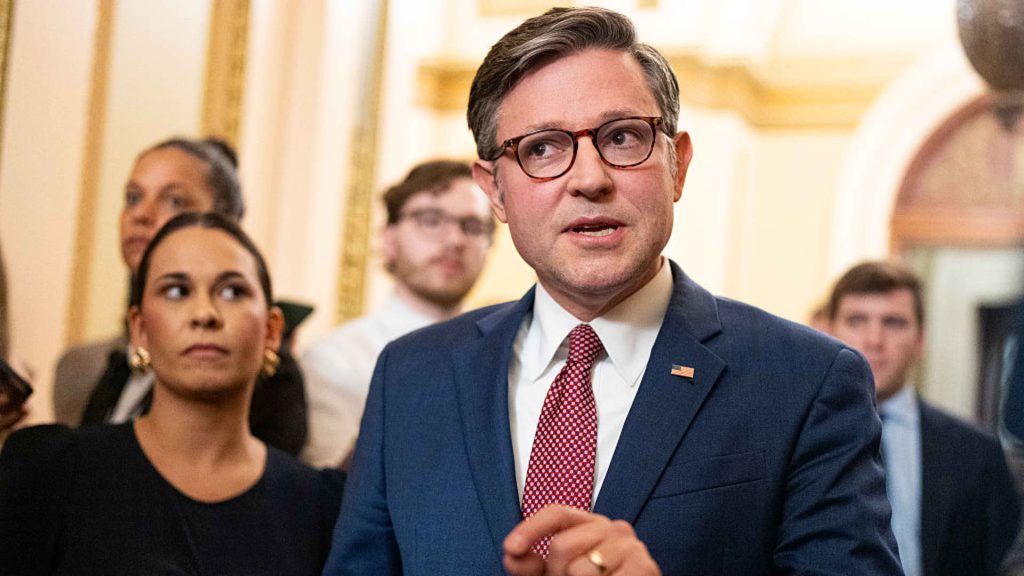The U.S. Capitol has become a contentious battleground as the House Budget Committee recently voted against a major budget bill aligned with President Donald Trump’s policies, marking a significant setback for Republican leadership. The vote, which resulted in a 16-21 defeat, showcased divisions within the party, particularly among conservative hard-liners who opposed the multi-trillion-dollar package. The repercussions of this decision are expected to influence ongoing negotiations as Republican leaders seek to find common ground amidst internal disagreements.
| Article Subheadings |
|---|
| 1) The Committee Vote and Immediate Reactions |
| 2) Key Figures and Their Stances |
| 3) The Implications of the Budget Package |
| 4) The Democratic Position on the Bill |
| 5) What’s Next for Republicans? |
The Committee Vote and Immediate Reactions
On Friday, the House Budget Committee’s decision to reject President Trump’s proposed budget package revealed deep fractures within the Republican Party. The tally of 16 votes against and 21 for the bill indicated that the opposition included not only all Democratic members but also five conservative Republicans—a faction known for its staunch fiscal conservatism. This unexpected coalition between hard-liners and Democrats was particularly alarming for Republican leaders who had hoped to garner greater party unity around the bill. With the adjournment of the hearing, Representative Jodey Arrington, the committee chair from Texas, expressed disappointment but also the necessity for continued conversations.
Key Figures and Their Stances
Several key members of Congress emerged in this debate, highlighting their firm stances on the bill. Notably, House Majority Leader Steve Scalise of Louisiana was seen conferring with Freedom Caucus members, including Representatives Chip Roy from Texas and Ralph Norman from South Carolina. Tensions ran high as these members articulated their concerns regarding the bill’s potential impact on the national deficit. Chip Roy, among the most vocal critics, cautioned that the proposed fiscal measures could exacerbate the existing fiscal challenges. “This bill falls profoundly short,” he declared, urging his colleagues to consider the long-term consequences of the proposed spending and its implications for future budgets.
The Implications of the Budget Package
The proposed multitrillion-dollar budget package aimed to align with President Trump’s fiscal vision but faced severe scrutiny from within its party. Critics pointed out that the bill features a concerning balance of “back-loaded savings” against “front-loaded spending.” Essentially, this means the bill would initiate significant expenditures in the early years while delaying promised savings, a mismatch that would likely lead to greater deficits. For those members advocating fiscal responsibility, this was a non-starter. The ramifications of this internal struggle extend beyond just one bill; they reflect broader issues of governance, party unity, and the Republican Party’s evolving identity in response to both the economic landscape and their commitment to conservative principles.
The Democratic Position on the Bill
On the other side of the aisle, Democrats wasted no time in capitalizing on the Republican discord. Representative Brendan Boyle of Pennsylvania highlighted the disunity within the GOP by vowing that all Democratic members would oppose the budget bill unequivocally. He noted, “There is a strong divide between Republicans and some other Republicans,” suggesting that the internal dissent could create an opportunity for Democrats to unify their efforts against Republican initiatives. With the Democratic Party firmly against the budget, they aim to present an alternative fiscally responsible agenda that resonates with voters wary of escalating national debt.
What’s Next for Republicans?
In the aftermath of the vote, Republican leaders have acknowledged the urgency to address the concerns raised by dissenting members. Negotiations are set to continue, with hopes of revising critical aspects of the budget that could sway more votes in favor. Party dynamics are expected to play a significant role in the coming days as leadership attempts to reconcile differing viewpoints among its members. The discussions will likely surround tax provisions and Medicaid elements of the bill, with various factions seeking assurances that fundamental reforms will be made. Observers indicate that the path ahead is fraught with challenges but also pivotal moments for the GOP to either strengthen or fracture its unified front as the 2024 elections approach.
| No. | Key Points |
|---|---|
| 1 | The House Budget Committee voted 16-21 against a key budget package. |
| 2 | Five conservative Republicans joined Democrats in opposing the measure. |
| 3 | The rejection highlights ongoing divisions within the Republican Party. |
| 4 | Democrats are united in opposing the budget proposal. |
| 5 | Next steps involve negotiations to address concerns raised by dissenting members. |
Summary
The recent vote by the House Budget Committee against President Trump’s budget proposal is a significant indicator of the challenges facing Republican leadership as they navigate internal party divisions. With dissenting voices gaining traction, particularly from fiscal conservatives, the future of significant legislation remains precarious. As negotiations continue, the outcomes will not only affect the bill at hand but may also set the stage for future discussions about the Republican Party’s identity and coherence amidst evolving political landscapes.
Frequently Asked Questions
Question: What were the key reasons for the rejection of the budget proposal?
The budget proposal was rejected primarily due to concerns over increasing the national deficit and the belief that it would not provide adequate fiscal responsibility, particularly from conservative members of the Republican Party.
Question: How does this vote reflect internal divisions within the Republican Party?
The vote illustrates significant ideological splits within the party, especially between fiscal conservatives and more moderate Republicans, highlighting challenges in presenting a unified policy agenda moving forward.
Question: What implications does the rejection have for future legislation?
The rejection indicates a potential roadblock for future legislation and could require Republican leaders to make concessions to satisfy differing factions within the party as they attempt to regroup and unify for upcoming legislative sessions.
